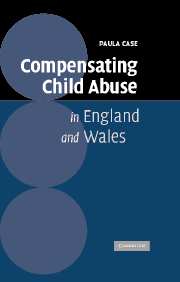2 - Classifying Abuse as a Civil Wrong
Published online by Cambridge University Press: 19 July 2009
Summary
The hidden horrors of physical violence, sexual abuse and emotional damage to children in schools and in care are now beginning to surface in personal injury claims brought by victims years after the event … The harm suffered can have catastrophic consequences and if a life has been blighted by that degrading conduct a remedy in damages, ought, in justice, to be available if the balance of fairness between the parties can accommodate it.
Introduction
This chapter explores civil litigation by adult claimants alleging that they were abused during their childhood years and examines the different forms of action which might be used to launch such proceedings. The particular difficulties in establishing each cause of action will be addressed and, where the courts of England and Wales have yet to hammer out these issues, case law from other jurisdictions is referred to as a means of providing tentative suggestions as to how English law might develop. Generic issues of proof of damage, causation, remoteness and limitation are dealt with in later chapters.
The current state of civil litigation relating to abuse
The number of civil claims for the harm caused by child abuse appears to be rising steadily and promises to continue to do so. This is not necessarily part of any compensation culture (which in any case has been rejected as fictional) but is the result of the fact that the prevalence of child abuse and the association between sexual abuse and long-lasting psychological trauma are now widely accepted.
- Type
- Chapter
- Information
- Compensating Child Abuse in England and Wales , pp. 52 - 143Publisher: Cambridge University PressPrint publication year: 2007



